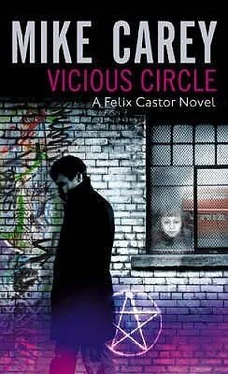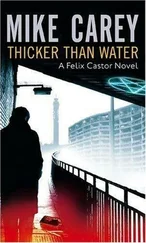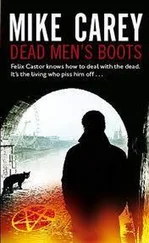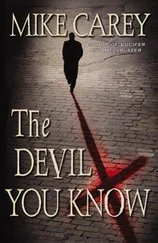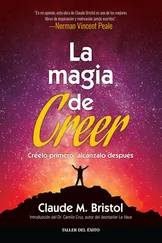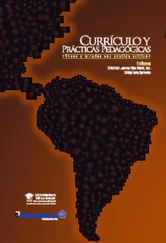It was Asmodeus. This was why he’d suddenly let Rafi out from under, and this was where his other foot had come down.
Juliet had just picked a fight with one of the oldest and baddest bastards in Hell. And she’d lost.
Where to now?
I took Juliet back to Pen’s and laid her down in my own bed: after all, I wasn’t likely to be using it myself for a while. But Pen wasn’t happy: she wasn’t happy at all.
She’d come back from Rafi’s assessment hearing so full of good feelings that she was in danger of overflowing – practically tap-dancing, because Rafi had stayed rational all the way through and had made a really good impression on both the independent doctors. They’d even given Webb a bit of a telling-off for trying to delay proceedings.
But when she saw Juliet lying on my bed, death-white like a statue stolen from a mortuary, her mood took a downward plunge.
‘That’s the thing that tried to kill you.’
‘Yeah,’ I admitted. I didn’t think Pen had got a good look at Juliet’s face, since at the time she’d been looking down the sights of a BB gun and firing filed-down rosary beads into her from behind. But I guess once you’ve seen Juliet, from any angle, the memory tends to stay etched on your brain.
‘Fix, she’s evil.’ There was a slight tremor to Pen’s voice, which I could well understand. ‘She’s so beautiful, but she . . . everything about her . . . She’s like a poisonous snake that hypnotises you so you’ll stand still while it bites.’
‘That’s exactly what she is,’ I agreed. ‘But she doesn’t bite any more, Pen. We laid down some ground rules.’
Pen wasn’t reassured: it wasn’t her physical safety she was mainly worrying about. ‘She shouldn’t be here. This house is a shrine, Fix. You know that. I’ve worked really hard to make it into a place that chthonic powers will be attracted to. Powers of nature and light. If she stays here, they’ll feel the taint. They’ll leave, and I may never be able to bring them back.’
She was almost in tears. ‘The powers seem to cope with me okay,’ I said, getting a little desperate now. ‘They can’t be all that fastidious, can they?’
‘They weighed you,’ Pen said. ‘You came out all right.’
‘Well, can they weigh Juliet?’
She hesitated. Pen hates to judge anyone harshly: I could see her fighting against her instincts, and abruptly I felt sick with myself for trying to twist her arm.
‘It’s okay,’ I said, hefting that negligible weight in my arms again. ‘I’ll take her someplace else.’
But I was pissing in the wind. Back in the car again, driving into the centre of town, I racked my brains for a somewhere else that would serve. Juliet was slumped across the back seats, exuding even in her unconscious state a sweet, rank smell that was trying to insinuate itself between my hind-brain and the more refined areas of grey matter, filling my mind with indelible carnal imagery. Asleep or awake, she was still a Venus flytrap. There was nowhere where she’d be safe.
My brain more or less on automatic as I fought against that smell and against myself, I’d swung west again: not towards Acton but into Paddington. What I had to do there shouldn’t take too long: maybe if I just covered Juliet with my coat, she’d go unnoticed until I got back. I didn’t have too much choice, anyway: there were so many ticking clocks around, it was getting hard to hear yourself think. The thing in Saint Michael’s church was getting stronger; the parishioners were still out there in the night with heads full of poisonous shit; Basquiat was sorting through the red tape so she could arrest me for murder, and the Anathemata had given me my final warning: the only way out of the box canyon was to keep moving forward as the walls closed in on both sides. Find Dennis Peace, find Abbie Torrington’s ghost, and maybe it would all fall into place. Maybe. Otherwise we were all going to Hell in an over-crowded handbasket.
I parked as close as I could to Lancaster Gate station without hitting a double yellow: I didn’t want the car drawing any attention while I was gone, so it made sense to stay the right side of legal. I walked the rest of the way to Praed Street, and in through the ever-open gates of what used to be the genito-urinary clinic – the pox shop. For the past seven years, though, it had been given over to a more esoteric form of medicine: metamorphic ontology.
Jenna-Jane Mulbridge had coined the term, and had then given it currency by hammering on the same drum in about two dozen monographs and three full-length studies – one on the were-things, one on zombies, and one on ghosts pure and simple. In the end she created the climate she needed in which to thrive, forcing university hospitals up and down the country to open their minds to a set of phenomena that hadn’t seemed to be medical at all until she got her hands on them. After all, how can you cure the dead?
How can you cure the dead? Jenna-Jane echoed back. Well, you can’t, of course. But if a dead soul is possessing a living host, then it becomes a condition that can be observed and treated: and if a dead soul returns to its own flesh, makes it move again and speak again and think again, then what definition of death are you using and how are you going to make it stick?
As careerist blitzkriegs go, it had paid off in spades. Most of the big hospitals had opened up MO units, and the biggest and best, at Praed Street, went to Jenna-Jane by right of conquest. She knew what to do with it, too. She pulled in all the London exorcists as consultants right from the start, got them to teach her everything they knew, then took it apart and put it together again with such ruthless, incisive intelligence that pretty soon it was us who were learning from her. That was an incredible time: a time when the baseline concepts of a new branch of science were being laid down, at a velocity that prevented anyone from questioning the route map or even from jumping down safely once things got moving.
Most of us started to have doubts about J-J in the first year, but we stayed on board for quite a while after that. It still seemed like we were doing useful work, even if we were doing it for a self-obsessed, vainglorious fascist. Then, one by one, we began to do the moral sums and see how far they were from adding up. Whether it was for the advancement of science or just for the advancement of Jenna-Jane Mulbridge, some of the things that were being done at Praed Street fell well into the realms of the cruel and unusual, and awoke the scruples of even the most hard-bitten and determinedly unimaginative ghost-hunters.
Rosie Crucis was the straw that crippled my personal camel. It had sounded harmless enough at first. Why were all the risen dead recent? Jenna-Jane had asked. Her own researches had yielded no ghosts whose date of death was earlier than 1935. Testimony from other exorcists could push that back at most another twenty years, to the middle years of the First World War. What of the millions upon millions of ghosts from ages past, who ought to have been filling the streets of London like an invisible tide?
Once you get to asking questions like that, you start to feel like you need at least half an answer before you’ll get a decent night’s sleep again. And for Jenna-Jane, it was always a case of learning by doing. She got about a dozen of us together: me, Elaine Vincent, Nemo Praxides, and some other big names flown in from Edinburgh, Paris, Locarno, Christ knew where. She put us all together in a room with nothing except twelve chairs and a table on top of which there was a big cardboard box. When everyone had arrived, she locked the doors and opened the box.
My best guess was a severed head, but it turned out to be a lot less dramatic than that. The box contained a lot of things that were very old without being particularly beautiful: an embroidered fan, on which the colours had bleached out with age to shades of fawn and grey; a handwritten prayer book; a tinted glass bottle that must once have contained perfume; a kerchief with the letter A picked out in over-elaborate needlepoint; a single page from a letter, without greeting or subscript.
Читать дальше
